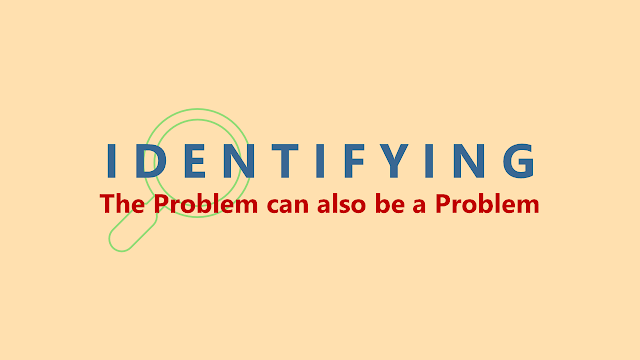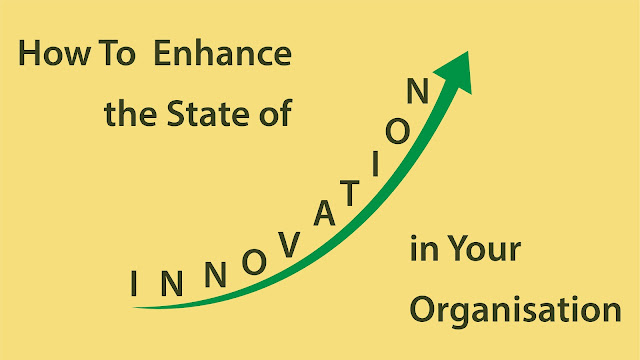Natural Intelligence in the era of Artificial Intelligence
Artificial
Intelligence (AI), in this article, refers to the intelligence demonstrated by machines,
and Natural Intelligence (NI) to that possessed by all varieties of species in
nature, including human beings.
We are
living in a day and age where AI is coming close to, and is expected to even transcend
NI, in the near future. Watches, phones, facial recognition technology, voice
search…. every aspect of our lives has an AI component to it.
This gives
us the impression that machines already know or will soon know more about us
than we know about ourselves! Many posts on social media about Google and
Facebook vividly bring out some of these aspects.
When it
comes to NI, it is traditionally believed that this is an in-born trait and
nothing much can be done about it. And it is often said that we are born intelligent,
but education and experience made us ‘dumb’.
All these
thoughts make me wonder … “Is this really so?”, “How do we deal with NI in the
era of AI?”, and so on.
Here is my
attempt to answer these and other related questions ….
As AI enhances,
we will have to simultaneously enhance NI
AI has
started taking over many low-value tasks such as automating routine and generic
processes. It is helping eliminate human errors with higher speeds on such
tasks.
Critical aspects
of low-value tasks and high-value tasks like decision-making, synthesising,
inferring etc. still need holistic human intervention.
As time
progresses, AI may start taking over these too.
So, to stay
relevant, as well as, deal with the current set of challenges faced by AI, we
need to continue to enhance our NI.
NI is
not just limited to human cognitive intelligence
Natural
intelligence is not just limited to the intelligence of human beings, but of
all other living organisms – plants, trees, ecosystems, wildlife etc.
In fact,
history is brimming with innovations inspired by the natural world.
For instance,
aeroplanes were engineered on the basis of several principles of a bird’s
flight, while the bullet train’s nose was inspired by a kingfisher’s beak.
Similarly, honeycomb
and ant-hill structures formed the basis of many designs, while swarm intelligence
inspired a variety of complex algorithms.
To add to
this, emotional intelligence in natural species is an essential element of living
beings and sets them apart from one another. It has been the core driver for
living beings to overcome many challenges.
Hence, to
progress further, we will need to leverage all aspects of NI and not just limit
it to human cognitive intelligence.
NI can
be an acquired skill
To
understand this better, let us classify all the sources of intelligence available
in nature into two broad types - Human and Other.
As human
beings, each one of us have been born with unique talents – of varying types
and degrees. Our life experiences also contribute towards establishing these.
Although,
what we get is not in our control, what we do with it … certainly is!!!
Over
generations, our fellow-humans have made several attempts to understand Natural
Intelligence and also document this understanding into various disciplines.
It is up to
us to make the most of these learnings.
Although
not all types and levels of traits may suit us, we can certainly leverage the available
know-how and develop the ones that do.
So,
how can one enhance Natural Intelligence?
One of the
main reasons why education and experience tend to lower our intelligence is that
it induces biases of many types. These biases often prevent us from exploring things
beyond our comfort zones.
Fortunately,
there are many innovation approaches that have well-established techniques to enable
us to identify and manage our biases.
These also
help us to dig deeper by leveraging emotions and connecting the dots across
domains, thereby transferring phenomena from one domain to another.
There are
also approaches like the ones in ‘biomimetics’ that help us uncover the unique ways
of doing things by different species in nature.
Thus,
systematic ways to innovate help us leverage the intelligence of both, Human
and Other types of natural species.
Has it
worked?
My short
answer is YES. I have done it, and enabled many to do it in a variety of domains/functions
and contexts.
To add
icing to the cake, I have also noticed many so-called ‘high performers’ who are
unable to leverage their NI because of dominant biases of a domain/ function, as
well as, extra-constitutional emphasis on execution over exploration.
On the
other hand, there are many so-called ‘under-performers’ who have done wonders
once they have gotten a hang of such techniques, and turned out to be not just
high performers themselves, but also enablers of high performers.
Hence, I
certainly believe that systematic ways of innovation have the power to enable
the enhancement of Human Intelligence, decode intelligence of Other species, and
not just evolve Artificial Intelligence, but all
other domains as well.
So, to summarise:
- AI is growing leaps and bounds. As this discipline advances, we must boost our NI as well.
- NI goes beyond that of human beings and includes the collective wisdom of all natural species, including emotional intelligence. It must be leveraged to the fullest.
- NI is not only an in-born skill, it can also be acquired. We must cultivate and hone this attribute.
- Amidst the progression of Artificial Intelligence, Natural Intelligence shouldn’t take a back seat.
As always, I welcome your thoughts in the interest of mutual learning!



